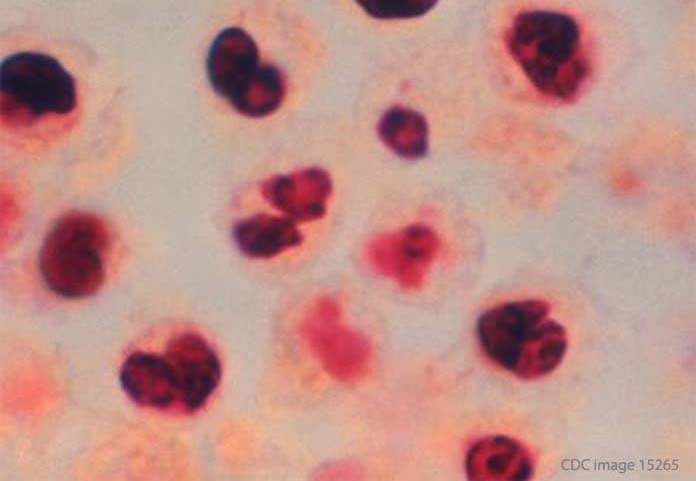IU Health Ball Memorial Hospital, in Muncie, Indiana, is taking proactive steps to test and restrict water usage following the diagnosis of Legionnaires’ disease in one of its patients last week.

Chief Medical Officer and Vice President for Operations Jeffrey Bird announced that the hospital has sent water samples for testing for the dangerous Legionella pneumonia bacteria, a process expected to take 10-14 days (1). While they await test results, they are also treating the water system, restricting water use in public restrooms, and only allowing patients to use showers equipped with special filters. The hospital has also requested the assistance of a national expert in helping to control potential risk to patients.
This isn’t the first time that the health system has been hit by Legionnaires’ disease. In February 2014, two patients at IU Health’s University Hospital and Simon Cancer Center died after contracting Legionnaires’ disease.
When Legionnaires’ Disease Strikes in Hospitals

Administrators at public, private, and Veterans Affairs hospitals have been made well aware, in recent years, of the risks that contaminated water systems pose to their patients – especially those with compromised immune systems. In what has been a very gradual process, a few state health departments (New York, Pennsylvania, and Maryland) have begun to encourage municipal hospitals to implement preventive water testing standards (aligned with those of ASHRAE, the American Society of Heating, Refrigerating and Air Conditioning Engineers). The State of New York Department of Health’s 2005 guidelines strongly emphasize the need for long-term, continuing vigilance in maintaining complex water systems:
“Cases of Legionnaires’ disease result from exposure to contaminated water aerosols or aspirating contaminated water. A link has been established between Legionnaires’ disease and potable water or aerosol-generating devices, such as cooling towers, showers, faucets, hot tubs, whirlpool spas, respiratory therapy equipment (e.g., nebulizers) and room-air humidifiers. Immunocompromised patients at healthcare facilities are at greater risk of infection. Therefore, cooling towers, hot water systems, and other equipment that may generate aerosols must be properly operated and maintained … Complete eradication of Legionella is not feasible and re-growth will occur. Therefore, long-term control measures must be implemented. Environmental surveillance (collecting water samples or plumbing system swab samples for Legionella analysis) is necessary to ensure that disinfection and long-term control measures are effective.”
Recent Hospital Legionnaires’ Disease Outbreaks
When hospitals fail to take proactive water testing measures such as these, patients die – up to 50% of Legionnaires’ disease cases in immune-compromised individuals are fatal.
Source:
1. Gibson, Robin. “IU Health BMH responds to Legionnaires’ case.” The Muncie Star Press. Web. 4 April 2016.